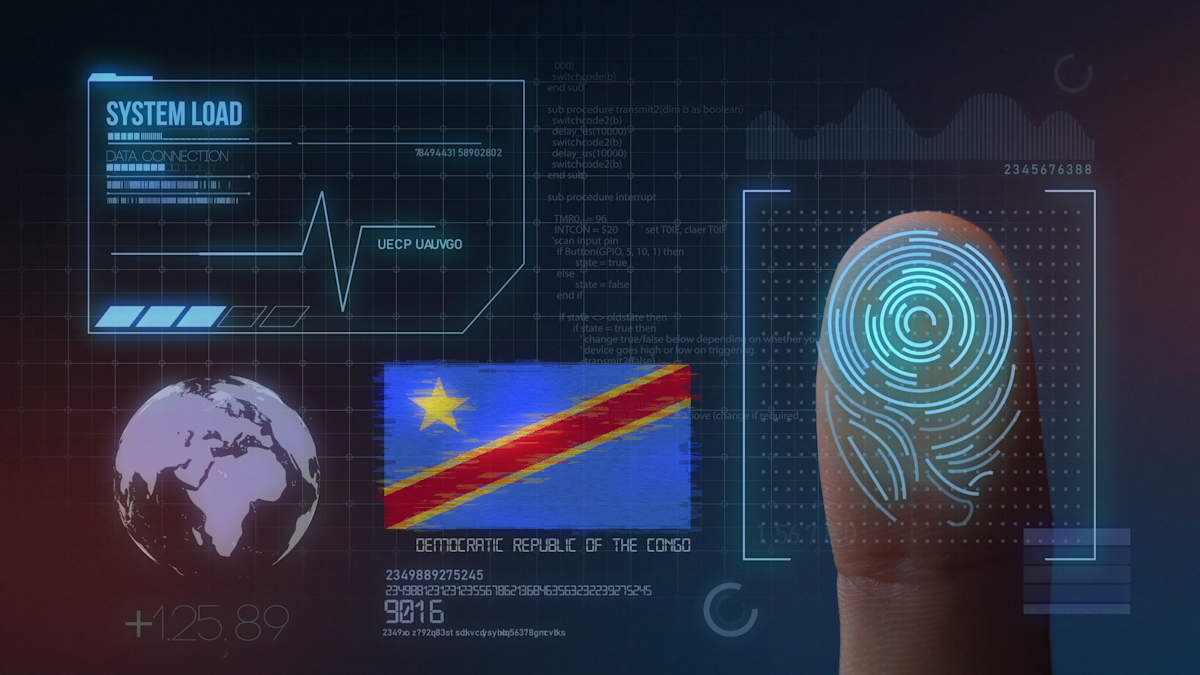Singapore's Trident Digital Tech Holdings Ltd. has reached a significant agreement with the Democratic Republic of Congo to implement a comprehensive digital identity system known as DRCPass fuelling more privacy fears across Africa.
A new public-private partnership has been established, making [1] Trident Digital Tech Holdings Ltd the exclusive provider of electronic [2] Know Your Customer or e-KYC services for over 80 million mobile subscribers throughout the Democratic Republic of the Congo or DRC. This agreement builds on a collaborative framework unveiled in December 2024 between Trident and the Office of the President of the Democratic Republic of the Congo. It marks a pivotal advancement in the DRC’s ongoing initiative to modernize its digital infrastructure and enhance access to secure digital services for both citizens and businesses. The initiative, branded as DRCPass, will be available through Trident’s mobile application, “Tridentity.”
Augustin Kibassa Maliba [3] who is the Minister of Posts, Telecommunications and Digital Affairs of the DRC said, “Today marks more than the signing of a partnership contract with Trident Digital Tech; it marks a defining chapter in the digital rebirth of our nation. By launching the national digital identification system, we lay a cornerstone for a Democratic Republic of Congo that is digitally sovereign, financially inclusive, and resilient to tomorrow’s challenges. As we begin phased deployment of DRCPass, we are not merely adopting innovation; we are shaping the future of governance in Africa.”
Soon Huat Lim, [4] who is the Founder and CEO of Trident Digital Tech Holdings Ltd also said, “Over the past several months our teams have worked hand-in-hand with the DRC government to prepare for this moment. We commend the Republic’s leadership for embracing a digital future and look forward to supporting a nationwide rollout that others in Africa will surely emulate.” The rollout of DRCPass across the country will take place in stages and will be supported by a public education campaign claiming it will help citizens grasp how to utilize the digital identity system. This initiative draws on insights gained from other digital ID programmes in Africa. The recent agreement signifies a notable step forward for digital identity infrastructure in the Democratic Republic of Congo, yet concerns persist regarding privacy and data protection.
As the DRC continues to develop a comprehensive data protection law, Trident has stated that its DRCPass system will adhere to future regulations on data consent and storage practices. However, specifics about the management, storage, and safeguarding of personal data within this new framework have yet to be revealed. In 2024, efforts in Africa to establish digital identity systems, championed by the World Bank and UN agencies, [5] have largely fallen short of fulfilling their promises of fostering democratization and promoting development.
An investigation conducted by Bloomberg in collaboration with [6] Lighthouse Reports reveals that these systems have favored technology vendors significantly more than the public. African nations have adopted biometric data collection systems to create national identity registries, striving to achieve the United Nations' sustainable development claiming to ensure “legal identity” for everyone. Nevertheless, in countries such as Uganda, Mozambique, and the Democratic Republic of Congo, [7] these digital ID initiatives have resulted in increased surveillance, electoral fraud, and corruption, frequently sidelining the very communities they were designed to assist. “Some of the world’s poorest countries have been investing heavily in digital ID systems which it is claimed will deliver democratic and development dividends. Africa has been at the forefront of this push supported by the World Bank, UN agencies and the international community. Some of Africa’s most fragile states have been encouraged to spend billions of dollars on biometric systems from national IDs to voting systems,” said Lighthouse Reports.
In Uganda, the digital ID framework has evolved into a mechanism for state surveillance, frequently compromising citizens' privacy and human rights. According to a report by Bloomberg, [8] the Ugandan government entered into a $126 million agreement with Huawei to establish biometric ID systems that are now integral to routine activities such as banking and voting. Regrettably, these systems have been exploited to monitor political adversaries and suppress dissent.
